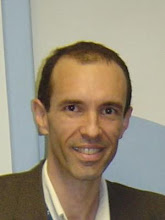Just wanted to blog about this citation made by John D. Sterman (Business Dynamics, 2000, p. 8):
When you are confronted by any complex social system, such as an urban center or a hamster, with things about it that you’re dissatisfied with and anxious to fix, you cannot just step in and set about fixing with much hope of helping. This realization is one of the sore discouragements of our century . . . You cannot meddle with one part of a complex system from the outside without the almost certain risk of setting off disastrous events that you hadn’t counted on in other, remote parts. If you want to fix something you are first obliged to understand. . . the whole system. . . Intervening is a way of causing trouble. (L. Thomas, Lives of a Cell: Notes of a Biology Watcher, 1974, p. 90)
No further comments as for now. My reading was caused by the bringing of System Dynamics into the Systems Modeling classes at EGC/UFSC. Doctorate candidate Maurício Uriona is the guy behind it. By the way, we're approaching systems modeling with Mario Bunge's CESM model (composition-environment-structure-mechanism) and system dynamics came to help in the study of mechanisms.




